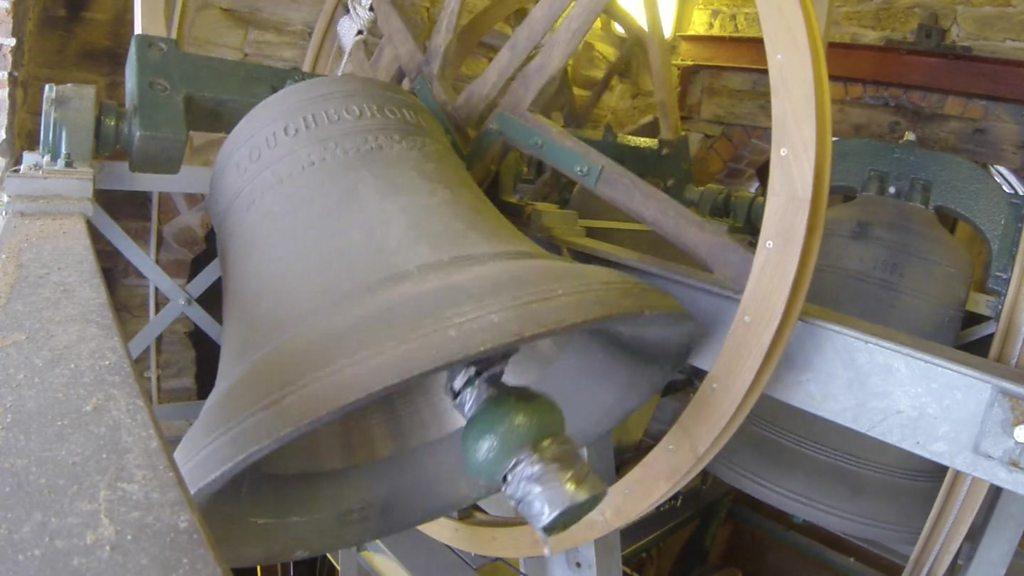Bells of medieval Ruthin church to be restored
- Published
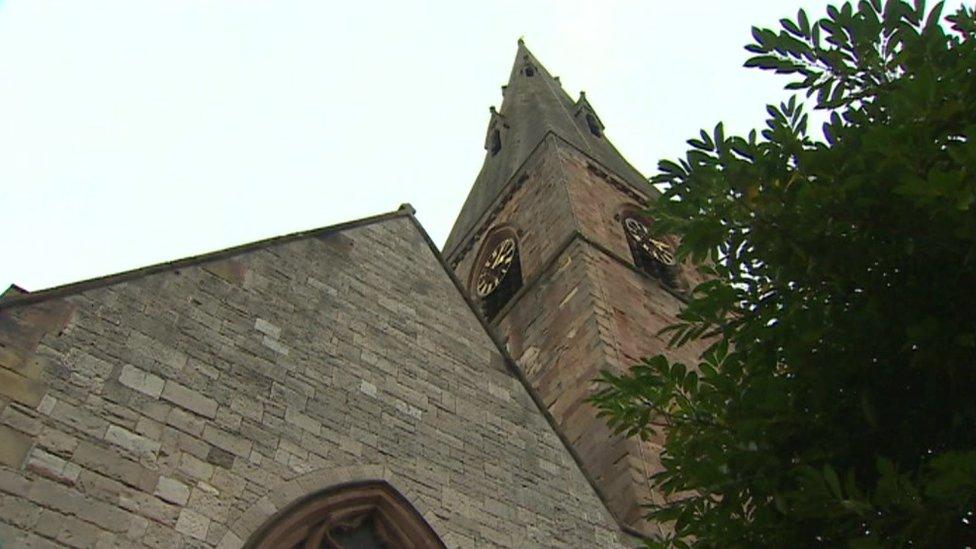
A "great bell" has been rung at St Peter's since at least 1654
Work is to begin to remove the eight bells from a medieval church so they can be rung safely once again.
The bells of St Peter's Church in Ruthin, Denbighshire, were bought in the mid-19th Century by public subscription.
Now, a £96,000 Heritage Lottery Fund grant and other donations will contribute to the £191,000 cost of repairing them.
And a training programme will encourage a new generation of bell-ringers.
A "great bell" has been rung at St Peter's since at least 1654, and by 1788 the church had a peal of six.
These were replaced in 1843 and two new trebles added in 1889.
But Peter Furniss, from the North Wales Association of Church Bell Ringers, said: "They've been in a neglected state for in excess of 50 years. The last time they were rung regularly was in 1977.

Peter Furniss has been advising on the project
"The fifth bell is currently too badly cracked to be rung... but the major problem is the frame that supports the bells is completely worn out. As the bells swing around the frame is moving around.
"At the moment these bells take a great deal of effort to ring. Once they've been restored, we anticipate they can be rung by anybody from the age of 10 up to the age of 90 and beyond."
Project co-ordinator Jenny Trigger said the bells would be taken to the Taylor's Foundry in Loughborough, where they were made in the 19th Century.
A new metal frame will replace the ancient oak frame and better access to the bell tower created.
"Once we've got the bells in ringing condition, we are going to then reintroduce this very ancient art of full circle change ringing," she said.
"A full circle of people, you change bells, you ring in a mathematical formula, and you get great fun and comradeship out of it."
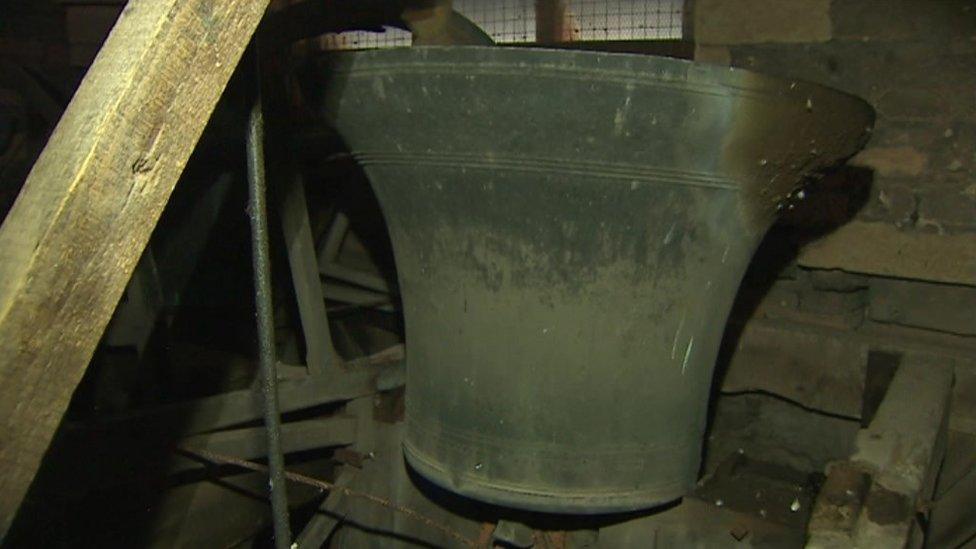
All eight bells will be retuned
The bells were rung for the last time on 12 October to mark the start of commemorations in the town for the centenary of the end of World War One.
The warden of St Peter's Church, the Rev Stuart Evans said: "The history of the church is bound up with the history of the town, not least the daily ringing of the curfew bell to ensure everyone was within the walls before 8pm.
"One of the key things for me is the fact they're going to be able to be rung out on a regular basis. It just reminds people we are still here."
Work is expected to be completed in May 2019.
- Published8 May 2018

- Published12 November 2017
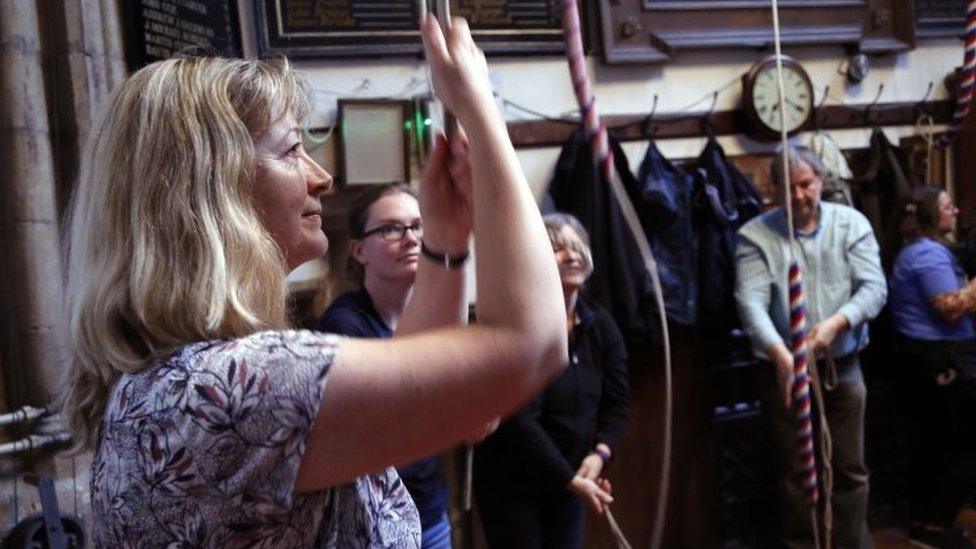
- Published20 January 2018
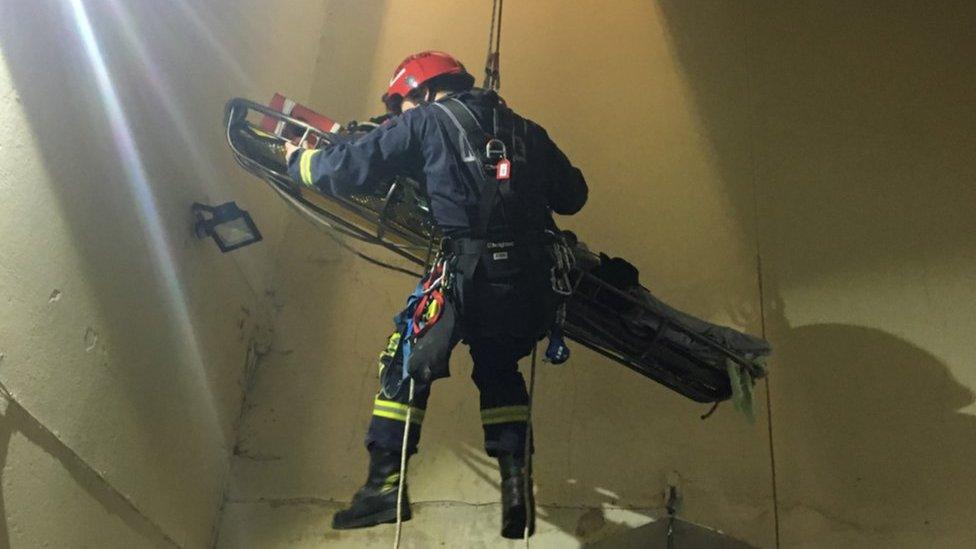
- Published4 September 2016
